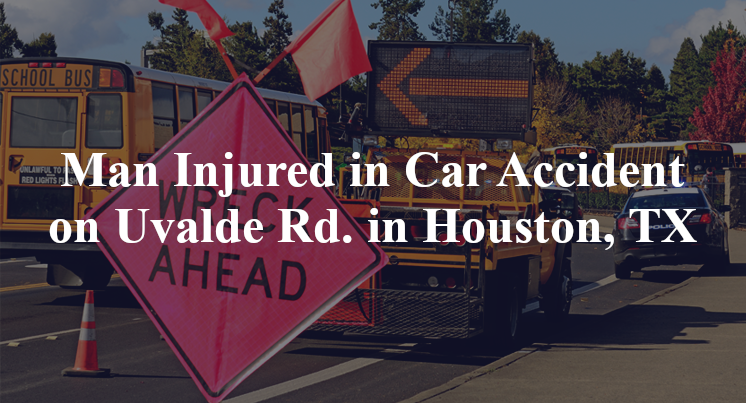Man Injured in Car Accident on Uvalde Rd. in Houston, TX
Harris County, TX — November 5, 2024, a man was injured following a car accident that occurred shortly after 10:00 p.m. along Uvalde Road.
According to authorities, a 37-year-old man was traveling in a southbound Toyota Avalon on Uvalde Road at the Bandera Street intersection when the accident took place.

Officials indicate that, for as yet unknown reasons, the Avalon attempted a left turn onto Bandera at an apparently unsafe time, failing to yield the right-of-way to oncoming traffic. This resulted in a collision between the Avalon and a northbound BMW.
The man from the Avalon reportedly suffered serious injuries over the course of the accident; he was transported to a local medical facility by EMS in order to receive necessary treatment. No other injuries have been reported. Additional details pertaining to this incident—including the identity of the victim—are not available at this point in time.
Commentary
When a crash happens during a left turn at a busy intersection, especially one that results in serious injuries, the assumption is often that the turning driver simply misjudged the gap or failed to yield. But in my experience, those surface-level conclusions don’t always tell the full story. To truly understand what happened at Uvalde Road and Bandera Street, and to ensure all avenues of investigation are explored, there are three key questions that should be asked.
First, did the authorities conduct a thorough investigation? Left-turn collisions require a clear understanding of timing—how far away the oncoming vehicle was, what speeds were involved, and whether anything obstructed the view. Investigators should assess lighting, lane markings, and the geometry of the intersection. Was the signal configuration (if any) working properly? Were there any witness statements or nearby cameras that could help reconstruct the sequence of events? These are details that don’t always make it into the standard crash report. That’s why, in cases like this, an independent reconstruction may be necessary to get answers that law enforcement couldn’t uncover in the moment.
Second, has anyone considered whether a mechanical failure may have contributed to the crash? If a driver attempted a left turn at the wrong time, it’s fair to ask whether that was a result of poor judgment—or if the vehicle failed to respond as expected. Could there have been a problem with the steering, brakes, or throttle? Even a brief delay in vehicle response can lead to a dangerous situation during a turn. These types of issues require a forensic examination of the vehicle, and unfortunately, that opportunity disappears if the car is repaired or scrapped before an inspection can take place.
Lastly, has all of the electronic data from the vehicles been collected? Both the Toyota Avalon and the BMW likely contain event data recorders that store valuable information: speed, throttle position, brake usage, and steering input leading up to the crash. That data can help establish whether the turn was abrupt, hesitant, or affected by an unexpected vehicle behavior. Additional information—such as GPS data, phone records, or nearby surveillance footage—can also help fill in the timeline. But like physical evidence, this data must be secured quickly before it’s lost.
When someone is seriously injured in a crash and the full story isn’t yet clear, it’s not enough to rely on assumptions about who turned and who didn’t yield. Asking these questions is the least that can be done to ensure that those affected by this crash get the clarity and closure they deserve.

*We appreciate your feedback and welcome anyone to comment on our blog entries, however all visitor blog comments must be approved by the site moderator prior to showing live on the site. By submitting a blog comment you acknowledge that your post may appear live on the site for any visitors to see, pending moderator approval. The operators of this site are not responsible for the accuracy or content of the comments made by site visitors. By submitting a comment, blog post, or email to this site you acknowledge that you may receive a response with regard to your questions or concerns. If you contact Grossman Law Offices using this online form, your message will not create an attorney-client relationship and will not necessarily be treated as privileged or confidential! You should not send sensitive or confidential information via the Internet. Since the Internet is not necessarily a secure environment, it is not possible to ensure that your message sent via the Internet might be kept secure and confidential. When you fill out a contact or comment form, send us an email directly, initiate a chat session or call us, you acknowledge we may use your contact information to communicate with you in the future for marketing purposes, but such marketing will always be done in an ethical way.